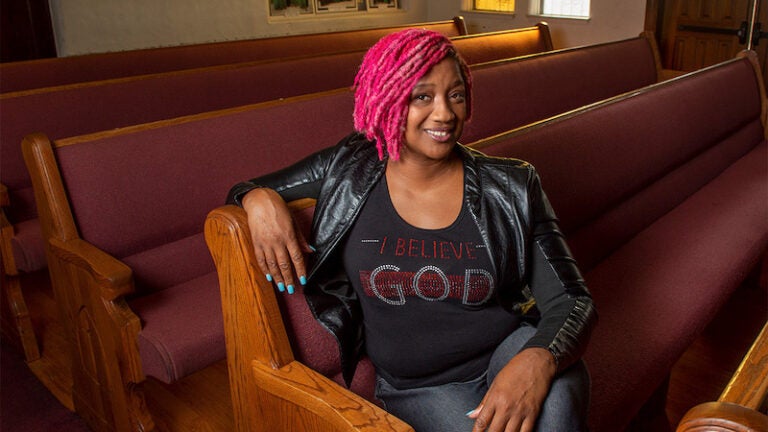
Why Activism Thrives in L.A.’s Black Churches
Many members of the Rev. Najuma Smith-Pollard’s church near downtown Los Angeles struggled for food during the COVID-19 pandemic. So, she joined other church leaders to distribute groceries like chicken, pasta and cheese.
When the parishioners needed to see a doctor or get cancer treatment, church staffers secured them a safe ride through a vehicle loan program.
And after the deaths of George Floyd and other Black Americans at the hands of police, Smith-Pollard marched with congregation members on the streets of L.A. in protest. Standing alongside Mayor Eric Garcetti at a 2020 press conference as civil unrest rocked the nation, she urged Angelenos to stand up against injustice together.
The founding pastor of Word of Encouragement Community Church considers it all part of her calling.
“It’s not faith or activism,” says Smith-Pollard, assistant director of community and public engagement at the USC Center for Religion and Civic Culture. “My faith informs my activism. It’s not a choice. I think that’s the case for a lot of people in the Black church. How we do activism might differ. That activism might take place through the arts, through protest, through the pen.
“But if you’re any way conscious or aware, your faith informs your activism.”
Smith-Pollard and her fellow religious leaders build on a long and storied legacy of advocacy, change and community outreach in Black churches in Southern California and beyond. These congregations that minister primarily to Black Americans have played a pivotal role in sparking waves of social change, from protest gatherings with Martin Luther King Jr. to rebuilding efforts after the Rodney King civil unrest to regional social justice and economic equality reforms today.
“To tell the story of social change in L.A. and not bring in the Black church would not be a truthful account,” Smith-Pollard says. “It must include the church.”